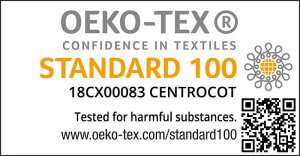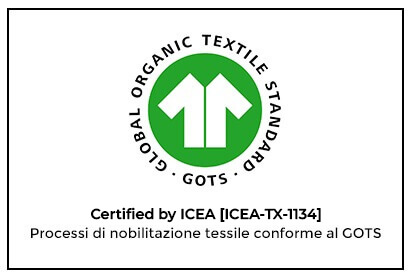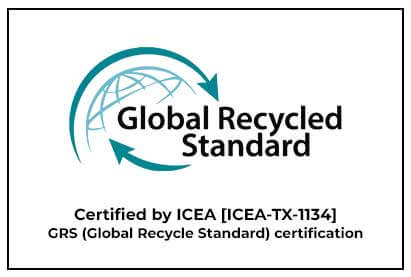On 22 October 2018 Tisco s.p.a. obtained the OEKO-TEX® – STANDARD 100 certification Class II (items in direct contact with skin) no. 18CX00083
https://www.oeko-tex.com/it/consumer/consumers_home/consumers_home.xhtml

Therefore, our company is authorized, on the grounds of Test Report no. 18RA12690 and the audits carried out c/o the company’s premises, to use the OEKO-TEX® – STANDARD 100 trademark for dyeing and finishing processes on behalf of third parties for the following items ( the full text of certification no. 18CX00083 is quoted hereunder):
“Single or blended fabrics, with or without elastane, with or without water-repellent and softener finishings made of cotton, viscose, modal, flax, silk, wool, cupro dyed with reactive dyes; made of viscose, cotton, cupro dyed with direct dyes; made of silk, wool and polyamide dyed with acid/metal-complex dyes; made of polyester and acetate dyed with disperse dyes.”
The STANDARD 100 by OEKO-TEX® is a worldwide consistent, independent testing and certification system for raw, semi-finished, and finished textile products at all processing levels.
The OEKO-TEX® – STANDARD 100 control system’s objective is to obtain products free of potentially harmful substances, and analyze any non-textile components in the product’s manufacturing process.
The objective of OEKO-TEX® – STANDARD 100 is to implement a reliable product label for consumers and a uniform safety standard for the assessment of harmful substances for textile and clothing manufacturers
Thanks to OEKO-TEX®’s experience, since the year 1992 the trademark contributes to high and effective product safety from a consumer’s point of view, as test criteria and limit values in many cases go far beyond applicable national and international standards. Extensive product checks and regular company visits also ensure that the industry has a globally sustainable awareness of the responsible use of chemicals.
Following the successful result of the audit and following the positive feedback received from the qualified Certification Institute, on January 20th 2020 our company obtained the GOTS Certification under license ICEA-TX-1134.
Thanks to this certification, Tisco S.p.a. has now the license to use the GOTS trademark for the dyeing and finishing processes of the fabrics that need to respect the GOTS standards.

GOTS is a trademark aknowledged at global level, it is supported by the main biological agriculture organizations (e.g. Textile Exchange, Organic Trade Association, IVN, Japanese Organic Cotton Association, Soil Association) and guarantees a non-polluting and sustainable production chain.
For this purpose GOTS sets many strict rules that must be observed from all the companies involved in the textile industry, starting from the fibers harvest through all the production steps aimed to the generation of a “green” output that can be certified with the GOTS label.
As verified during the audit, our internal procedures guarantee the proper selection chemical products that are GOTS compliant and our organization supports the enhancement processes to obtain final products that satisfy all the standards requested from the qualified Institute ICEA.
Following the positive outcome Audit and related verifications by the accredited ICEA institution, on 20.07.2021 Tisco has obtained the GRS certification following number ICEA-TX-1134
Global Recycle Standard is promoted by Textile Exchange, one of the most important international non-profit organizations for responsible and sustainable development in the textile sector.

GRS recognizes the importance of recycling for the growth of a sustainable production and consumption model, with the aim of promoting reduction of resource consumption (virgin raw materials, water and energy) increasing the quality of recycled products.
GRS certifies products that contain at least 20% of pre-consumer and post-consumer recycled material and also ensures that manufacturing activities and processes management use models and procedures that comply with the established requirements.
GRS, in addition provides the maintenance of traceability on both intermediate and finished products, and includes a restriction for the use of chemical products in accordance to environmental and social criteria in all the stages of supply chain.